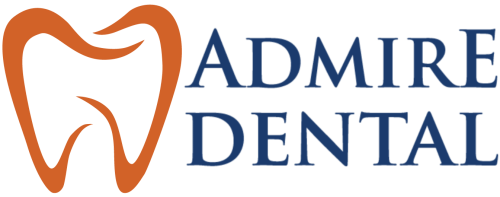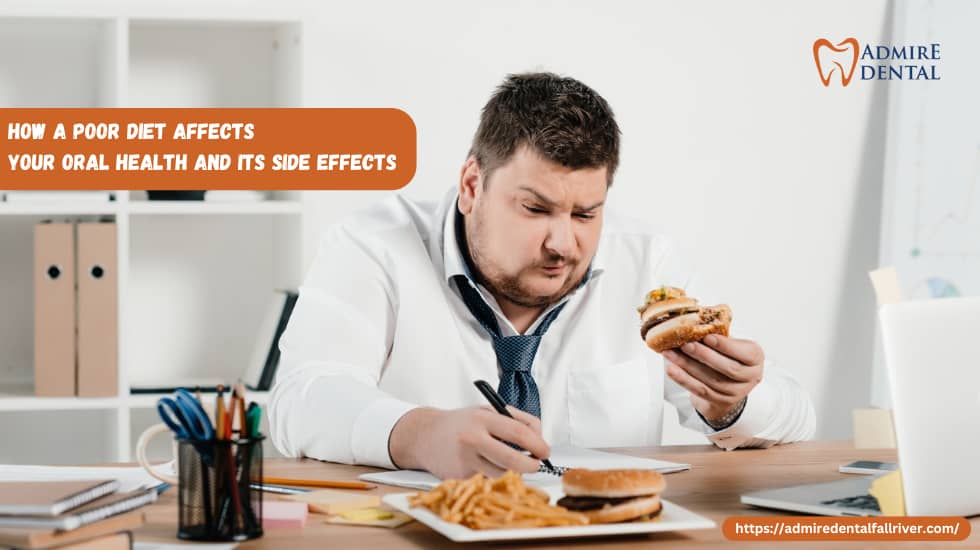Maintaining a healthy mouth is vital to overall health. While regular cleaning and brushing are important, however, your diet plays a crucial role in the overall health of your teeth and gums. Poor diets can cause a variety of oral health concerns that include gum diseases, many more. This article explains how poor eating habits can affect your teeth health, and how it is you could do to protect your smile. We will also discuss how a poor diet affects your oral health.
The Relationship between Dietary as well Oral Health
The food you consume provides the essential nutrients your body requires to remain well. Additionally, these food items affect the health of your mouth. A diet that is high in acidic foods, sugars as well as processed foods can result in negative effects on your gums and teeth. Here’s the way to do it:
Tooth Decay (Cavities)
Starchy and sugary foods are the main cause of dental decay. When you consume these food items and bacteria are present in your mouth, they produce acids that harm the enamel, which is the exterior layer that protects your teeth. In time, this may cause cavities. Most commonly, the culprits are:
- Sweet Drinks Drinks like sodas as well as sports drinks and fruit juices have high amounts of sugar which can degrade enamel.
- The sticky Snacks: Sweets, dried fruits and sticky food items stick to your teeth, and serve as the perfect place for bacteria to breed.
- Processed carbohydrate Things such as white bread, chips and crackers break down into sugars when you put them in your mouth, supplying bacteria with fuel.
Gum Disease (Periodontal Disease)
Gum disease is a severe gum infection which can cause tooth loss if not treated. It starts with plaque, an incredibly sticky layer of bacteria that builds up on the teeth. A diet that is high in sugars and carbs increases plaque build-up, leading to gingivitis, and eventually periodontitis which is one of the major factors as to how poor health affects your teeth health.
- Inflammation: Sweet foods can cause inflammation and worsen gum diseases.
- Vitamin deficiency: Another thing about how a poor diet affects your oral health is the deficiency of vital nutrients such as Vitamin C can cause the gums and render it vulnerable to infections.
Corrosion Tooth Enamel
Drinks and foods that are acidic can cause tooth enamel to be damaged and make your teeth sensitive to decay. This can lead to sensitivity to cold and hot food items, and an increased chance of getting cavities.
- Citrus fruits: Citrus fruits like lemons, citrus, grapefruits, and oranges are consumed in large quantities and may cause enamel erosion.
- The Energy and Soda drinks They have high levels of acid that remove enamel over time.
Oral Cancer
A diet which is deficient in vegetables and fruits can increase the risk of developing oral cancer. Vitamins A, C, and E that are found in fresh fruits and vegetables are a source of protection that could reduce the risk of cancer.
- Processing Foods A diet that is high in processed meats and lacking in antioxidants may cause cancer.
- Drinking Alcohol: Excessive alcohol may cause an increase in the likelihood of developing oral cancer, particularly when it is combined with smoking.
Note :- For professional guidance on maintaining your oral health, consider visiting the best dentist in Fall River, who can provide expert care and recommendations tailored to your needs.
Nutrients to help Oral Health – Poor Diet Affects Your Oral Health
There are a variety of nutrients in your diet that could improve you and your dental health. They include such nutrients no matter how much poor diet affects your oral health:
Calcium
Calcium is among the most vital nutrients to gum health. It is essential for the building of strong bones and teeth as well as helping to stop tooth loss. Actually, calcium is among the primary components of tooth enamel.
Phosphorus
Phosphorus is another nutrient that is required to be present in the body for the sake of oral health. It helps in maintaining the health of your teeth and also in preventing formation of cavities on the teeth. Phosphorus is another major component of tooth enamel. The majority of phosphorus in your body is stored in teeth.
Potassium
Potassium is also essential to maintain oral health. It assists in neutralizing the blood, preventing it from becoming acidic. When blood gets too acidic in nature, it removes calcium out of bones, and then moves it to different parts in the body. This could lead to bone loss in the jawbone. This could lead to tooth loss. Potassium can stop this from occurring.
Vitamin A
Vitamin A on the other hand is another vital nutrient when it comes to the health of your mouth. Maintaining the health of your gums is critical and the following might also help in avoiding gum diseases. This is the case because vitamin A is used by your body to help in the care and support of the soft tissues. Vitamin A aids in the absence of dry lips, and healthy soft tissues.
Vitamin C
Vitamin C can also be vital for the health of your mouth. It can help keep your gums and teeth healthy, and may also assist in preventing gum disease. Similar to vitamin A Vitamin C is essential in ensuring the health of soft tissue. Vitamin C can also reduce the quantity of oral bacteria and aids in keeping the gums connected to teeth to help prevent gum disease.
Vitamin D
Vitamin D is also essential for the health of your mouth. It assists in keeping your teeth healthy and may aid in preventing tooth decay. Vitamin D can also be vital to ensure the health of your jawbone. The reason for this is that the body utilizes vitamin D to absorb calcium into the bloodstream. In reality the absence of vitamin D may cause less calcium to be absorbed, which could lead to loss of bone. Vitamin D is particularly important for those who have dental implants because it helps speed up healing and less complications.
Vitamin K
Vitamin K can be vital in oral hygiene. It produces a protein called osteocalcin, a substance used by our body in order to defend bone tissue by blocking the substances that are responsible for breaking down bone tissue.
The most beneficial foods for your gum health are those that have the nutrients mentioned above. Milk cheese, yogurt and leafy green veggies are all good for your gums and teeth. In addition, drinking lots of water is a great method to improve the health of your mouth.
Poor Diet Affects Your Oral Health
The effects of poor teeth health can extend beyond the mouth. Here are a few of the side consequences:
The Pain and the Discomfort
Gum disease and cavities can cause severe pain that makes drinking, eating and even speaking difficult.
Bad Breath (Halitosis)
A poor oral hygiene diet can cause bad breath, which can affect your relationships with others as well as your confidence in yourself.
Tooth Loss
The presence of gum disease could lead to the loss of teeth, which can affect the ability of your mouth to chew properly and speak clearly.
Systemic Health Issues
There is a clear connection to oral health with general health. A poor oral health condition is linked to diabetes, heart disease, respiratory infections as well as other serious ailments.
Aesthetic Concerns
Missing or eroded enamel as well as missing teeth can alter the look of your smile. This can lead to problems with self-esteem.
Conclusion
Your diet plays an important part in ensuring the health of your mouth. Despite the fact that a poor diet affects your oral health, it will still be able to counter it. By avoiding acidic and sugary food items and adopting healthy, balanced meals that are with a high content of essential nutrients, you can shield your gums and teeth from the negative consequences of a poor diet. The importance of maintaining your oral health is beneficial to your gum health and enhances your overall health. Be proactive about your diet and hygiene now to ensure a healthier and brighter smile in the near future.
Frequently asked questions (FAQ)
What happens to sugar? How does it impact my tooth?
Answer: Sugar is an ideal food source for harmful bacteria within your mouth. If the bacteria eat sugar, they create acids that could damage tooth enamel and cause cavities. The more often you consume sugary food items and drinks the more acid attacks the teeth.
What is the impact of eating acidic foods for the health of your mouth?
Answer: Acidic food and drinks, including citrus fruits, sodas and energy drinks can cause tooth enamel to be eroded. This causes enamel to break down, making teeth more vulnerable to decay, sensitivity and discoloration. Acidic foods are a contributing factor to the formation of cavities, and also can increase your risk for developing gum disease.
Can a poor diet lead to gum disease?
Answer: Yes, a diet that is poor can cause gum disease. A diet high in carbohydrate and sugar can cause plaque to build up on teeth, resulting in gum disease (gum swelling) or, when not treated, periodontitis (advanced gum disease). In addition, deficiency in vital nutrients such as Vitamin C can cause the weakening of gum tissue and worsen gum disease.
What can I do to keep my mouth healthy and free of problems due to my eating habits?
Answer: For help prevent oral health issues related to diet follow these practices:
- Limit the consumption of acidic and sugary food as well as drinks to minimize how poor diet affects your oral health.
- Keep a balanced diet with plenty of vegetables, fruits, whole grains, and protein that is lean.
- Get plenty of fluids and make use of the fluoride-based toothpaste.
- Cleanse and floss often and see your dentist regularly for checks and cleanings.
What’s the indicators of tooth decay triggered from eating habits?
Answer: The signs of tooth decay are tooth sensitivity to cold or hot food items and visible pits or holes in the teeth, dark discoloration of the brown or black teeth, and a persistent toothache. Some early signs may include a frequent occurrence of bad breath as well as changes in the flavor of food.

